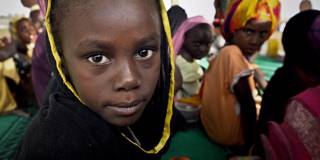Governments in the Sahel must strengthen their education systems and ensure access to quality health care and nutrition services. Success will require an integrated multisector approach, with investments tailored to each community’s needs.
WASHINGTON, DC – Inundated by bleak headlines and even bleaker forecasts, it is easy to forget that, in many ways, the world is better than it has ever been. Since 1990, nearly 1.1 billion people have lifted themselves out of extreme poverty. The poverty rate today is below 10% – the lowest level in human history. In nearly every country, people are healthier and better educated than ever before. Yet, as a just-released Goalkeepers report underscores, hardship remains the norm for many people worldwide, who continue to face high barriers to building a healthy, productive life.

WASHINGTON, DC – Inundated by bleak headlines and even bleaker forecasts, it is easy to forget that, in many ways, the world is better than it has ever been. Since 1990, nearly 1.1 billion people have lifted themselves out of extreme poverty. The poverty rate today is below 10% – the lowest level in human history. In nearly every country, people are healthier and better educated than ever before. Yet, as a just-released Goalkeepers report underscores, hardship remains the norm for many people worldwide, who continue to face high barriers to building a healthy, productive life.